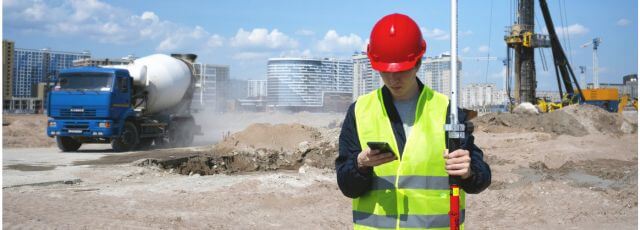11 real-life surveyor interview questions
A Surveyor is a professional responsible for determining property boundaries, conducting land measurements, and preparing sites for construction. This role requires a strong foundation in geography, mathematics, and law, along with practical skills in using various surveying instruments and technologies.
These surveyor interview questions are directly sourced from real hiring managers and they are ready to use.

Make sure that you are interviewing the best surveyor candidates. Sign up for Workable’s 15-day free trial to hire better, faster.
11 good surveyor interview questions
- Can you describe your educational background and how it has prepared you for a career in land surveying?
- Which subjects, such as geography, trigonometry, or cartography, do you find most intriguing in the context of land surveying, and why?
- Land surveying involves a significant amount of field work. Can you provide examples of your experience working outdoors in various conditions?
- How do you handle challenges like navigating through difficult terrain or dealing with adverse weather conditions during field work?
- Each state has its own land laws and requirements for licensure. How familiar are you with the land laws and surveying regulations in our state?
- Can you discuss a situation where understanding local land laws was crucial to your work?
- The Professional Surveyors exam is a comprehensive test of a surveyor’s knowledge and skills. How did you prepare for this exam, and what was your strategy for covering the vast array of topics?
- Surveyor-in-Training is a key step in becoming a licensed Land Surveyor. Can you describe your experience in this role and how it has shaped your professional development?
- What are some of the most significant projects you have worked on, and what role did you play in these projects?
- Surveying can present unique challenges. Can you provide an example of a particularly difficult problem you encountered in your work and how you solved it?
- How do you stay up-to-date with the latest developments in surveying technology and methods?
Here are 11 interview questions with sample answers, based on hiring managers’ notes, to help you identify the best candidates for this role.
1. Can you describe your educational background and how it has prepared you for a career in land surveying?
Assesses the candidate’s formal education and its relevance to surveying.
Sample answer:
“I have a degree in Geomatics Engineering, which covered essential topics like topography, geodesy, and cartography. This background provided me with a solid foundation in the principles of land surveying.”
2. Which subjects do you find most intriguing in the context of land surveying, and why?
Evaluates the candidate’s interest and understanding of key surveying-related subjects.
Sample answer:
“I find trigonometry particularly fascinating as it is fundamental in calculating distances and angles, which are core aspects of surveying. Its practical application in determining precise land measurements is what intrigues me the most.”
3. Land surveying involves a significant amount of field work. Can you provide examples of your experience working outdoors?
Inquires about hands-on fieldwork experience in various conditions.
Sample answer:
“I’ve worked on several land development projects where I conducted field surveys in diverse conditions, from urban areas to rugged terrains. This experience has honed my ability to adapt and work efficiently in different environments.”
4. How do you handle challenges like navigating through difficult terrain during field work?
Assesses problem-solving skills and adaptability in challenging field conditions.
Sample answer:
“When encountering difficult terrain, I prioritize safety and use specialized surveying equipment like robotic total stations to navigate and collect data accurately. Adapting my surveying techniques to the environment is key.”
5. How familiar are you with the land laws and surveying regulations in our state?
Checks knowledge of local legal requirements and regulations.
Sample answer:
“I am well-versed with our state’s land laws and surveying regulations. I ensure my work complies with these laws, particularly in boundary surveys, to avoid legal disputes.”
6. Can you discuss a situation where understanding local land laws was crucial to your work?
Seeks practical application of knowledge in land laws.
Sample answer:
“On a boundary dispute project, understanding local land laws was crucial. I conducted thorough research on property lines and easements, which helped resolve the dispute amicably.”
7. How did you prepare for the Professional Surveyors exam, and what was your strategy?
Examines preparation methods and study strategies for professional certification.
Sample answer:
“I prepared for the exam by reviewing key topics in land surveying, practicing past papers, and joining a study group. Focusing on weaker areas and time management during the exam was my main strategy.”
8. Describe your experience as a Surveyor-in-Training and how it shaped your professional development.
Explores the candidate’s growth and learning during their initial professional phase.
Sample answer:
“As a Surveyor-in-Training, I worked under experienced surveyors, which provided me with hands-on experience in various surveying techniques. It was instrumental in understanding the practical aspects of survey work, like using surveying instruments and interpreting data, which significantly shaped my approach to land surveying.”
9. What are some of the most significant projects you have worked on, and what role did you play in these projects?
Assesses the candidate’s experience in significant surveying projects.
Sample answer:
“One of my significant projects was a large-scale land development project for a residential area. I was responsible for conducting topographic surveys and preparing site plans, which were crucial for the project’s design phase.”
10. Can you provide an example of a particularly difficult problem you encountered in your work and how you solved it?
Tests problem-solving skills and adaptability in the face of surveying challenges.
Sample answer:
“I once dealt with a land parcel with unclear boundaries due to outdated records. I used a combination of historical data and modern GPS technology to accurately redefine the boundaries, resolving the ambiguity.”
11. How do you stay up-to-date with the latest developments in surveying technology and methods?
Evaluates the candidate’s commitment to continuous learning and staying current with industry advancements.
Sample answer:
“I stay updated by attending workshops and webinars, reading industry publications, and participating in professional surveyor networks. This helps me keep abreast of new technologies and methods in surveying.”
What does a good surveyor candidate look like?
A proficient Surveyor candidate should have a strong educational background in surveying-related fields, such as geography or geomatics engineering. They should demonstrate hands-on experience in various surveying techniques and the ability to adapt to different field conditions.
Familiarity with local land laws and surveying regulations is essential, along with experience in handling complex surveying challenges.
A good candidate will also show a commitment to professional development, reflected in their preparation for certification exams and staying updated with technological advancements in the field.
Red flags
Red flags in a Surveyor candidate include a lack of practical fieldwork experience or limited knowledge of surveying principles and techniques. Inadequate understanding of local land laws and regulations, or an inability to adapt to challenging field conditions, can indicate potential difficulties in executing surveying tasks effectively.
Poor communication skills and a lack of continuous professional development are also concerning, as these are critical for staying current in the evolving field of surveying.
